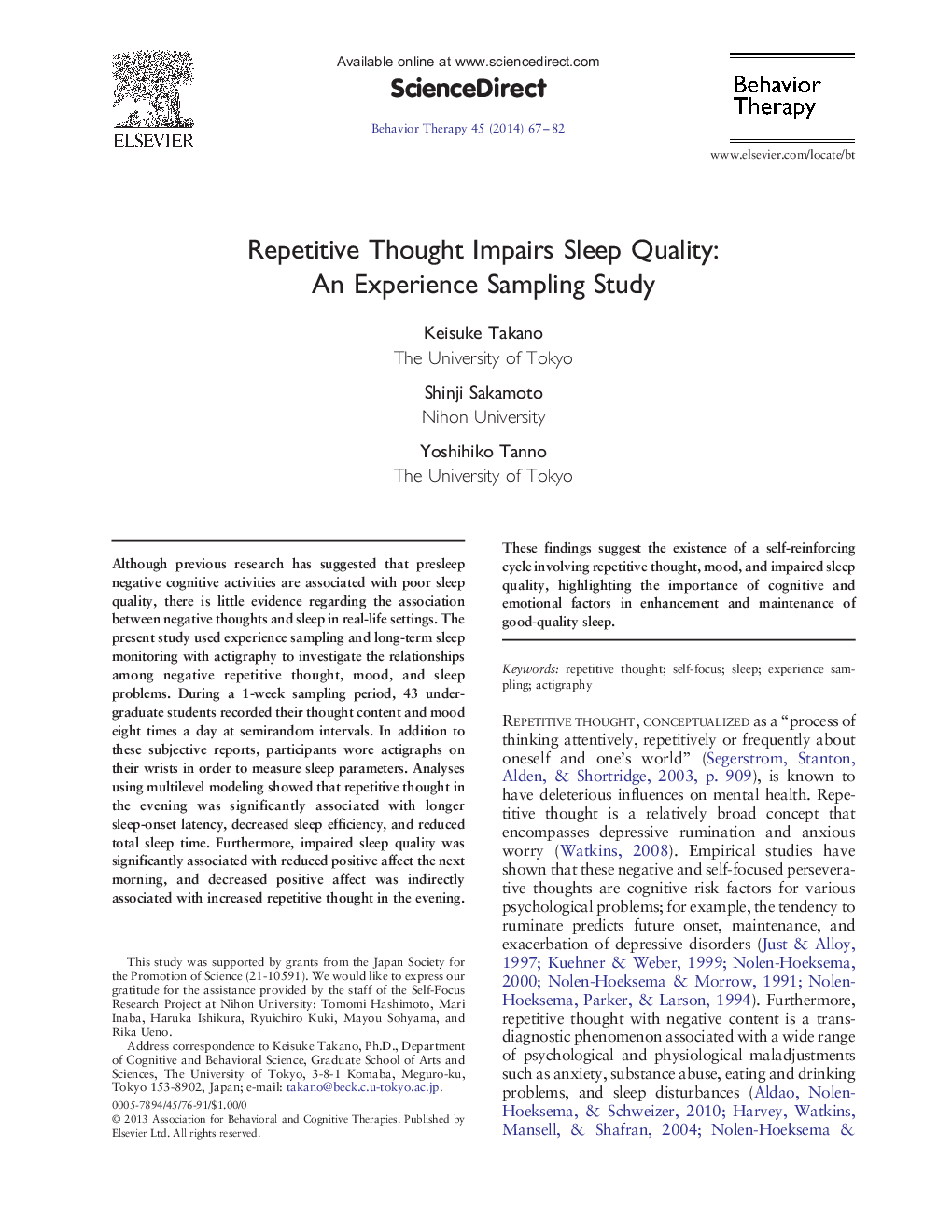| Article ID | Journal | Published Year | Pages | File Type |
|---|---|---|---|---|
| 901244 | Behavior Therapy | 2014 | 16 Pages |
•We examined the association between repetitive thought and sleep in daily-life.•We used experience sampling method and ambulatory monitoring of physical activity.•Repetitive thought in the evening was associated with reduced sleep quality.•Impaired sleep leads to next-day mood problems and further repetitive thought.•Self-reinforcing cycle involving repetitive thought, mood, and sleep quality exists.
Although previous research has suggested that presleep negative cognitive activities are associated with poor sleep quality, there is little evidence regarding the association between negative thoughts and sleep in real-life settings. The present study used experience sampling and long-term sleep monitoring with actigraphy to investigate the relationships among negative repetitive thought, mood, and sleep problems. During a 1-week sampling period, 43 undergraduate students recorded their thought content and mood eight times a day at semirandom intervals. In addition to these subjective reports, participants wore actigraphs on their wrists in order to measure sleep parameters. Analyses using multilevel modeling showed that repetitive thought in the evening was significantly associated with longer sleep-onset latency, decreased sleep efficiency, and reduced total sleep time. Furthermore, impaired sleep quality was significantly associated with reduced positive affect the next morning, and decreased positive affect was indirectly associated with increased repetitive thought in the evening. These findings suggest the existence of a self-reinforcing cycle involving repetitive thought, mood, and impaired sleep quality, highlighting the importance of cognitive and emotional factors in enhancement and maintenance of good-quality sleep.
